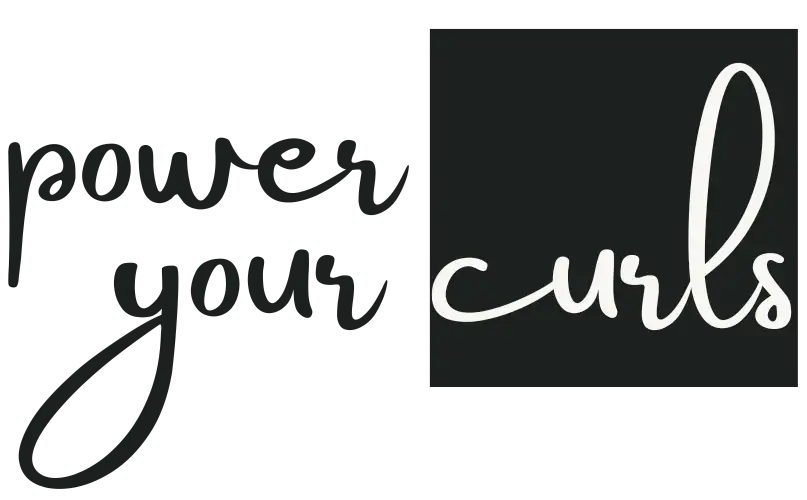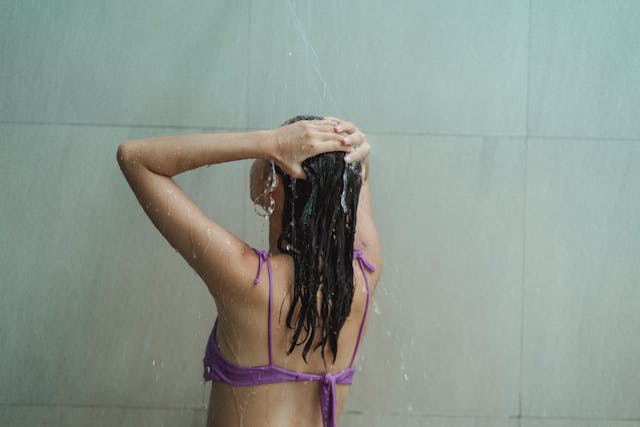
Have you experienced hair problems after traveling to a foreign country? One main issue here is possibly the type of water you are using to wash your hair or swim in.
Some countries and regions may have hard water and in this blog, we will find out how to deal with it.
What is hard water?
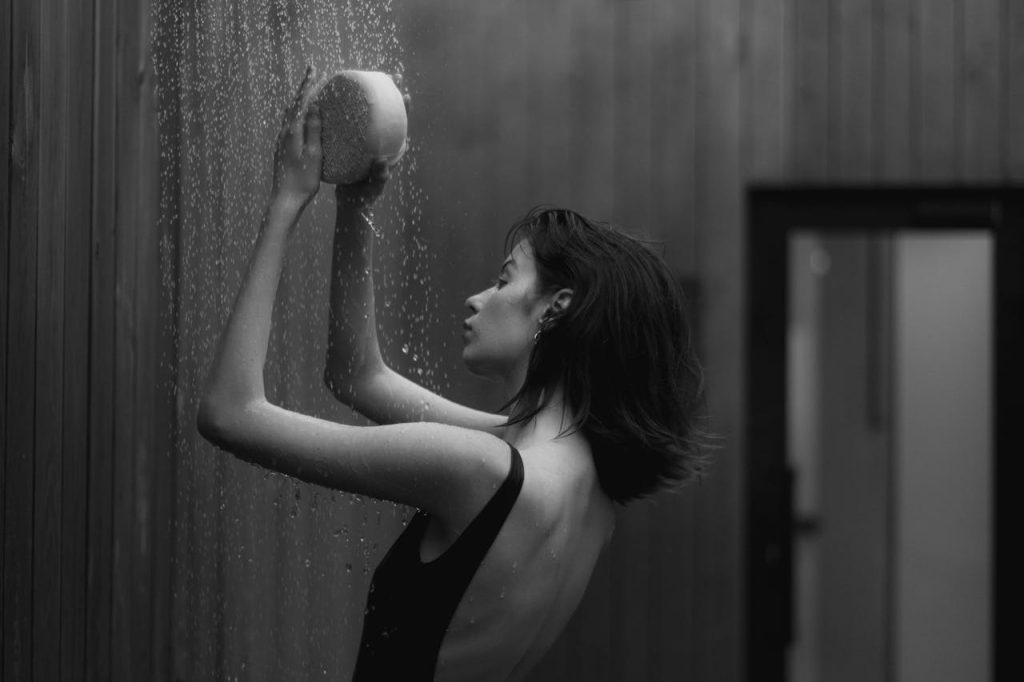
Hard water can be found in different parts and regions of the world. It may be located on beaches in Southeast Asia or some cities in the US, the UK, and the European Union.
This type of water includes different minerals which cause hair damage. Hard water contains calcium and magnesium ions, which mess up the protein of the hair and result in buildup on the hair shaft. Its minerals come from pipes, appliances, and other materials which are harmful to the hair and skin.
Does hard water affect your hair?

Washing your hair with hard water, which contains fluoride or other hard minerals, can affect hair and scalp. One problem that a person may face is worsened hair loss. A study showed that the chemical and mineral components of hard water can weaken hair’s protein structure or keratin, which will result in hair thinning or worse, hair loss.
While the research focused on men’s hair, some studies revealed that women tend to experience more severe hair loss than men due to washing hair with water rich in chlorine, fluorine, and hard minerals.
Hard water’s high levels of minerals such as calcium and magnesium can also leave impurities, residue and buildup on the hair and scalp. Ultimately, these can cause dryness, brittleness, and dullness of the hair.
A study indicated that minerals in hard water can clog pores, which can cause dry skin, eczema, dandruff, and damaged hair.
Another study observed the difference between washing hair with hard water and distilled water. It revealed that washing with high mineral water can cause ruffled and decreased thickness compared to washing with cleaner distilled water.
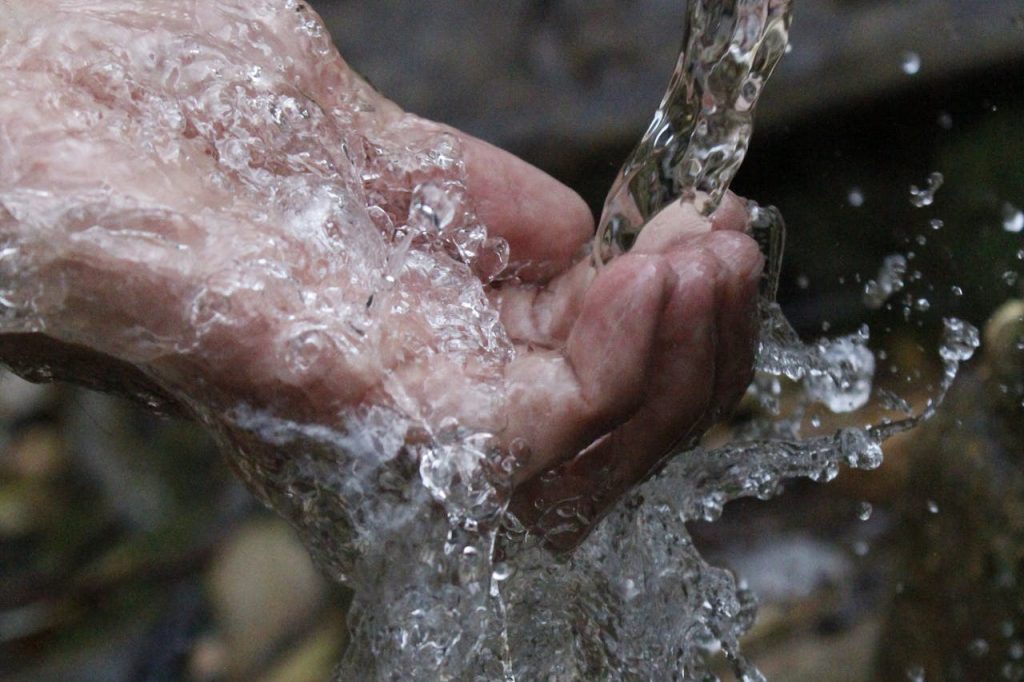
Aside from this, short-term issues caused by hard water can also lead to other long-term problems such as difficulty in hair growth and styling hair.
It can also open issues such as the inability to color your hair since the hard water already damaged the structure of the hair shaft.
How to tell if you have hard water hair?
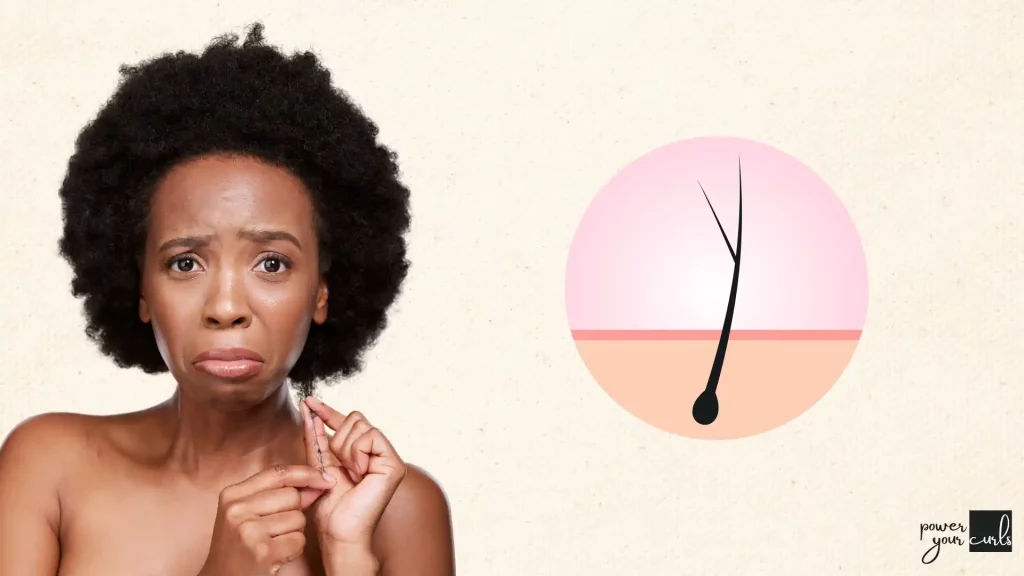
The first sign that your hair is damaged due to hard water is it already looks dull and lacks shine. This is because the chemicals and buildup from hard water can remove nutrients in the hair and get rid of natural oils.
Another sign is that its color is fading possibly due to the materials present in hard water. It can get worse depending on the hair’s exposure to hard water, which can even cause uneven hair color.
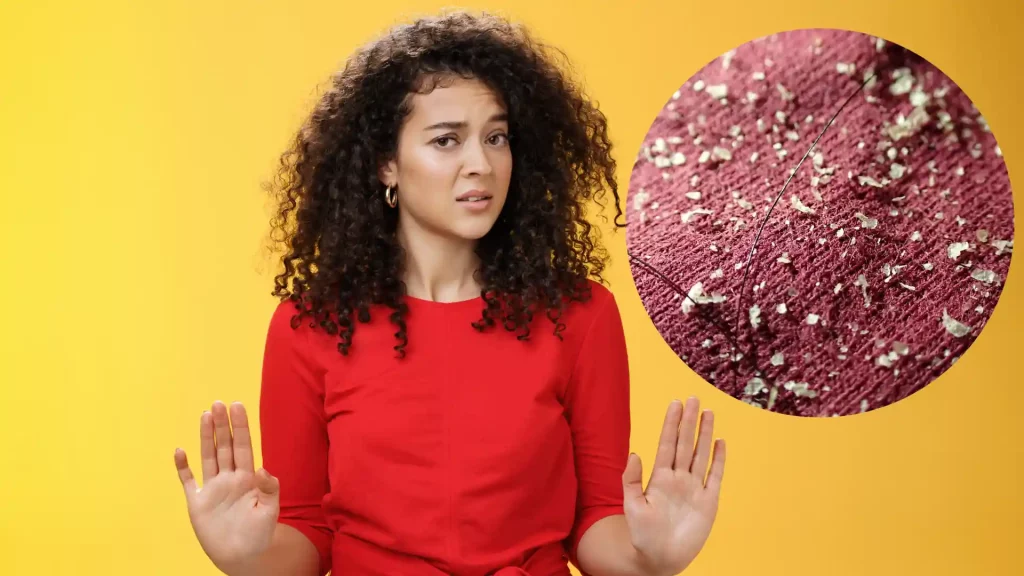
The third sign is the scalp is dry, flaky, and oily or greasy almost. Since the minerals from the hard water can clog the scalp, it may lead to dandruff or acne. With dry scalp, it will make our body think that it needs more oil. Thus, it will lead to overproduction of oil.
Lastly, if you notice your hair weakening with breakage and split ends, it is a sign that it will have difficulty in growing strong and new hair. This is also caused by the hard water’s effect on the scalp, which will affect blood circulation for healthy hair roots.
How do I protect my hair from hard water?
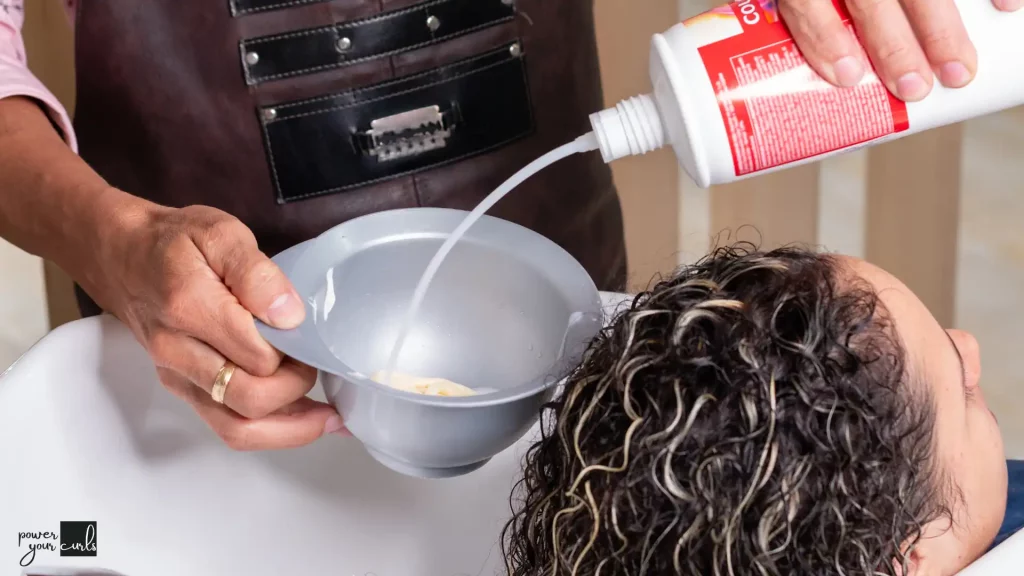
The water quality may be different from the country you are visiting so it may be wise to use shower filters that are simple to install.
According to PowerYourCurls dermatologist and co-founder Dr. Hamdan Abdullah Hamed, shower head filters can help reduce the risk of minerals and chlorine affecting your hair.
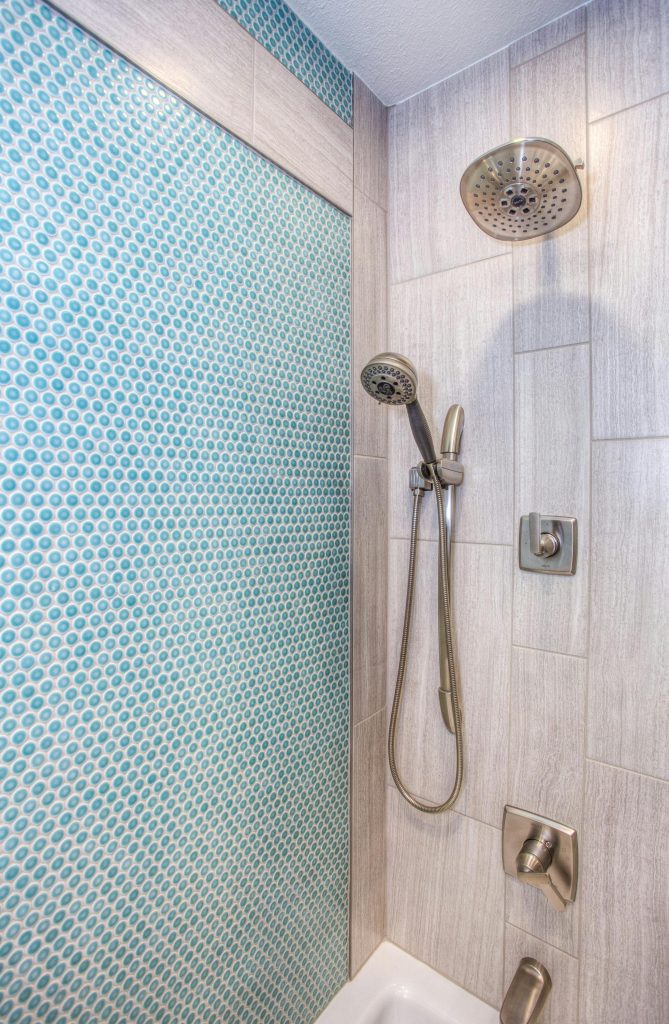
Another way to protect hair from hard water is by washing it with clarifying shampoos. Dr. Hamed recommends Curls Professional Pure Curls Clarifying Shampoo or Aunt Jackie’s Curls & Coils Power Wash Intense Moisture Clarifying Shampoo to help wash away mineral and other hair product residue.
“It can also remove lingering residue from hair and scalp as well as promote shinier locks,” said Dr. Hamed.
PowerYourCurls trichologist Dr. Faisal Hammadi recommends using acidic rinses to reduce buildup from minerals of hard water.
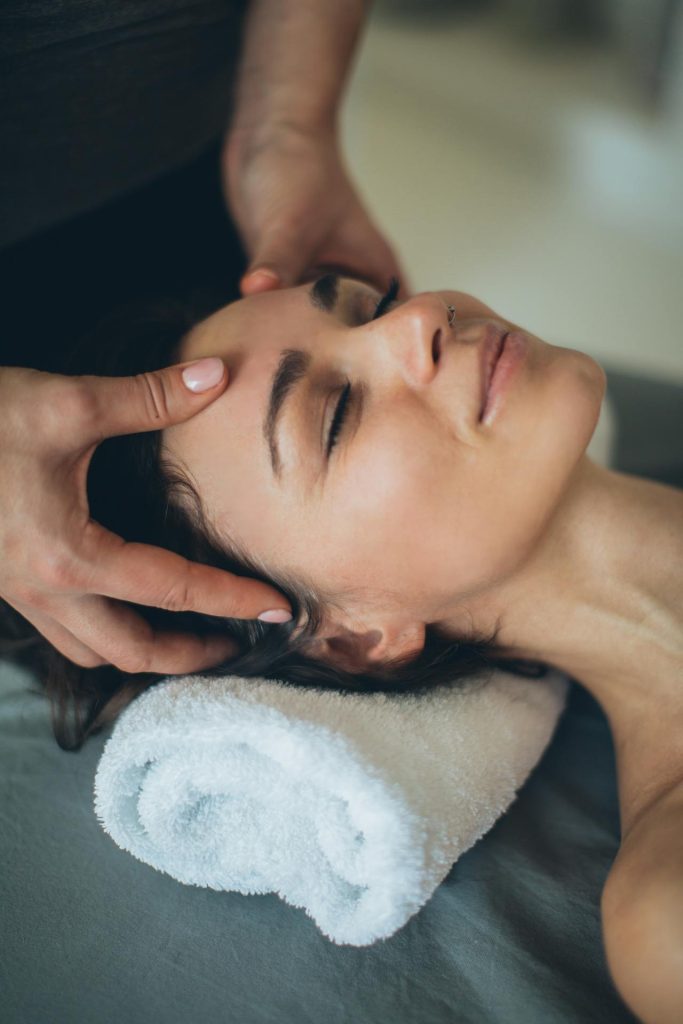
To do this, Dr. Hammadi advises using a tablespoon of apple cider vinegar or citrus juice with purified water. Using this solution, rinse it through the wet hair. After five minutes, wash hair with purified water to rinse the solution thoroughly.
Next, Dr. Hammadi recommends masks and leave-in conditioners as an added hair care routine to prevent dryness from hard water. It will also minimize tangled hair due to moisture from leave-in conditioner.
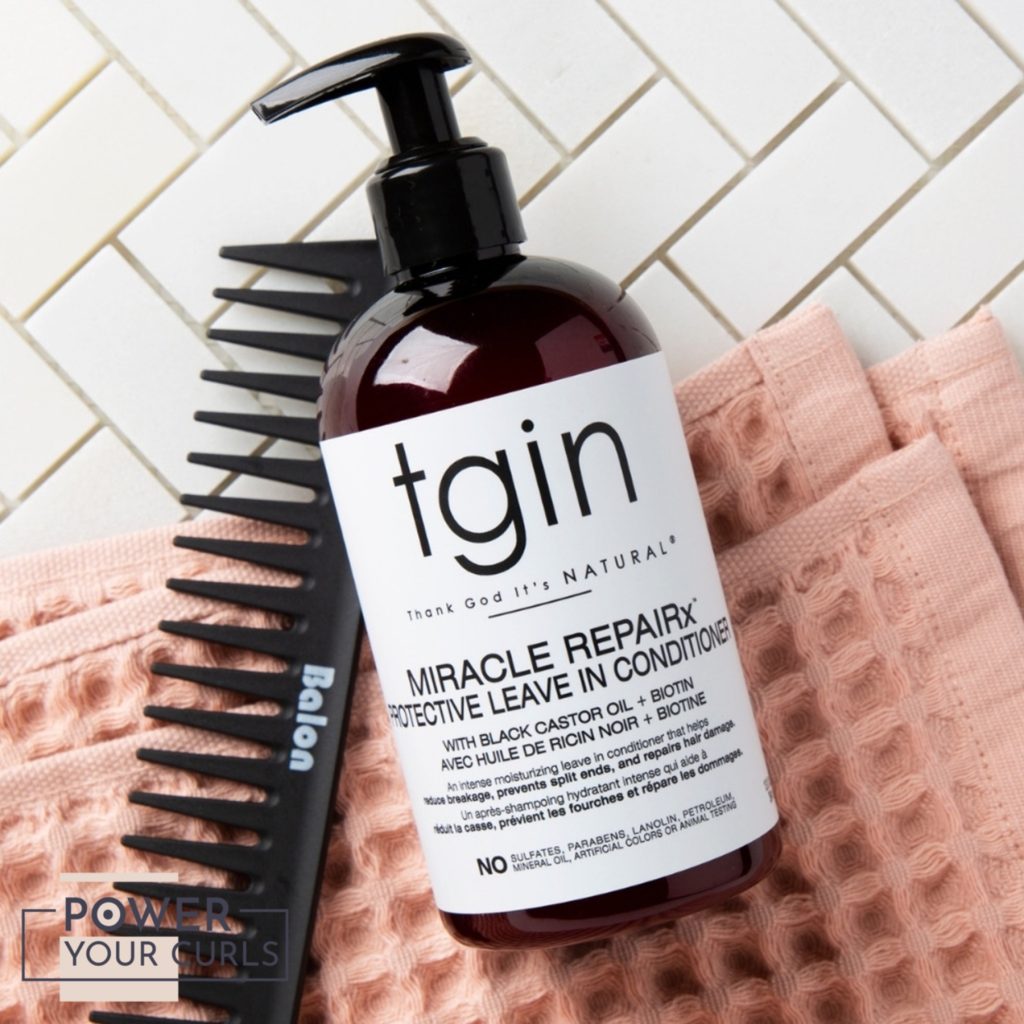
The beauty of leave-in conditioner is that it can be used depending on the type of hair you have. Dr. Hammadi recommends a small amount for fine or short hair to prevent greasiness. Apply the product on the middle part of the hair down to the ends.
When hair looks dry and lifeless, Dr. Hammadi also recommends spraying with a leave-in conditioner spray to add shine and promote hydration.
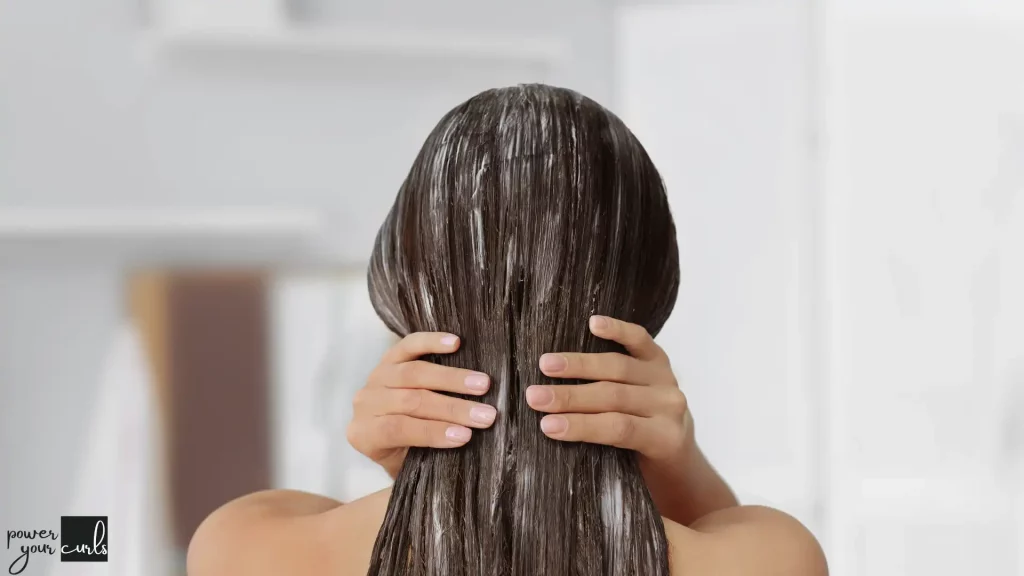
For hair masks, you may create DIY masks from kitchen ingredients or buy products such as Curls Blueberry Bliss Reparative Hair Mask or The Mane Choice Ancient Egyptian Anti-Breakage & Repair Antidote Hair Mask.
Another tip to shield hair from hard water is washing hair with purified bottled water, Dr. Hammadi said. It will be a protection from harsh chemicals and minerals before leaving the shower.
“It will also guarantee protection and gentle care on the scalp, not just the hair,” said Dr. Hammadi.
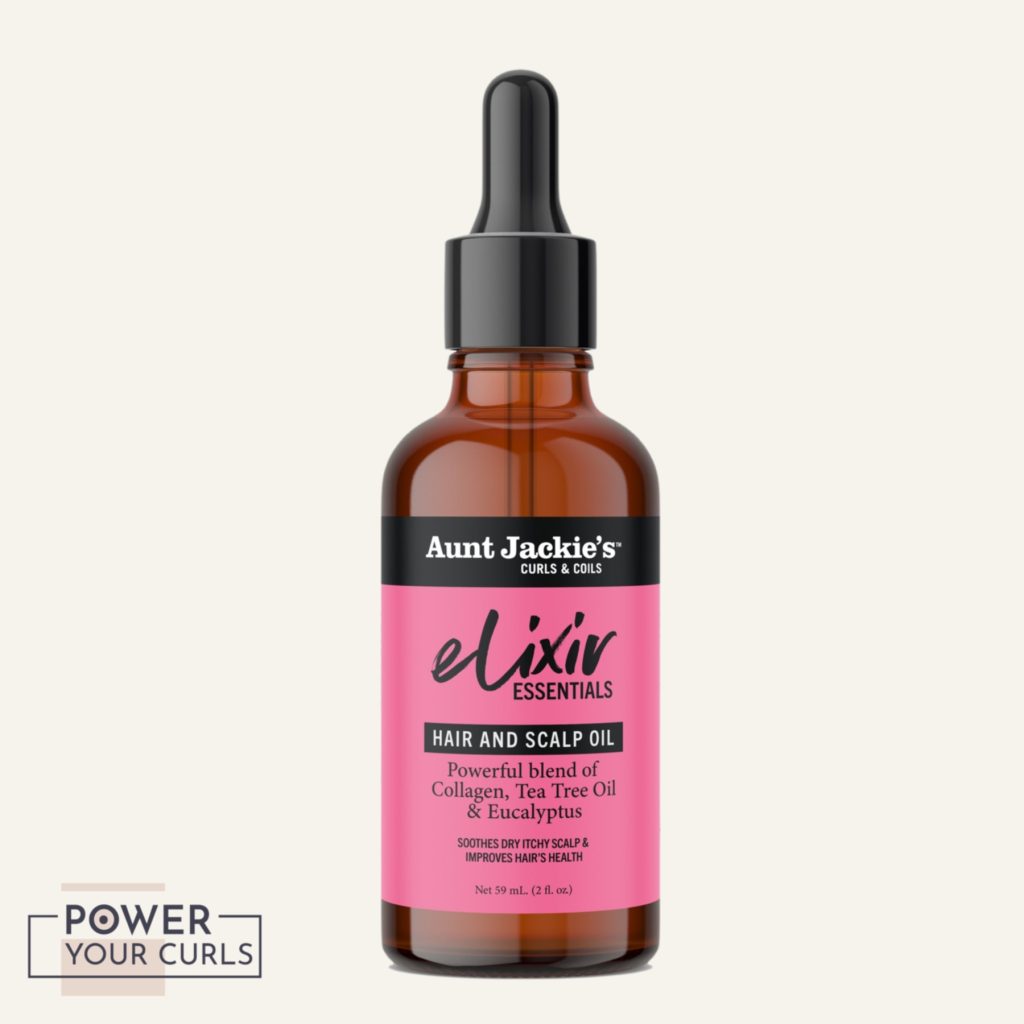
Finally, to prevent damaged hair due to hard water, apply protective hair oil on the scalp and hair. This will protect the scalp and hair for 30 minutes or even at night when you sleep. Dr. Hammadi recommends applying it before washing hair with shampoo.
He also advised using oil with moisturizing benefits such as rosemary, jojoba or coconut oil.
What is the best treatment for hard water hair?
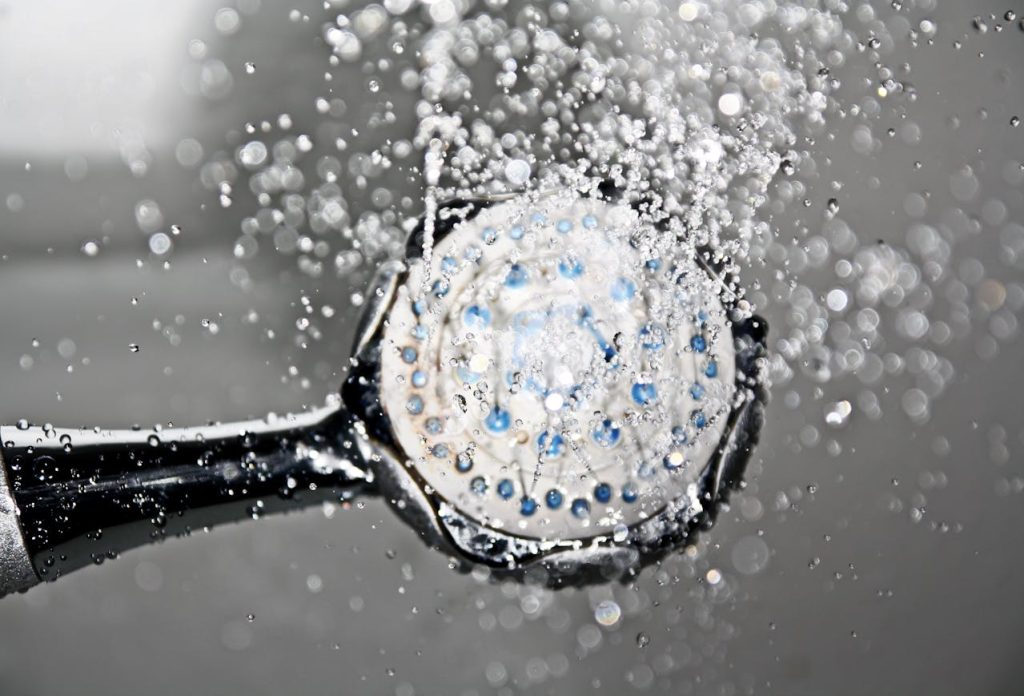
When hair seems damaged from hard water, there is still a remedy to fix this. PowerYourCurls hairstylist Gwenda Harmon recommends trimming hair to remove split ends and other weak strands. This will improve overall hair health and promote healthy hair growth.
“If split ends will be retained on hair, it will prevent new and stronger hair growth. It’s best to trim split ends earlier before it gets longer. The longer it stays, the longer hair strand you would need to cut,” advised Harmon.
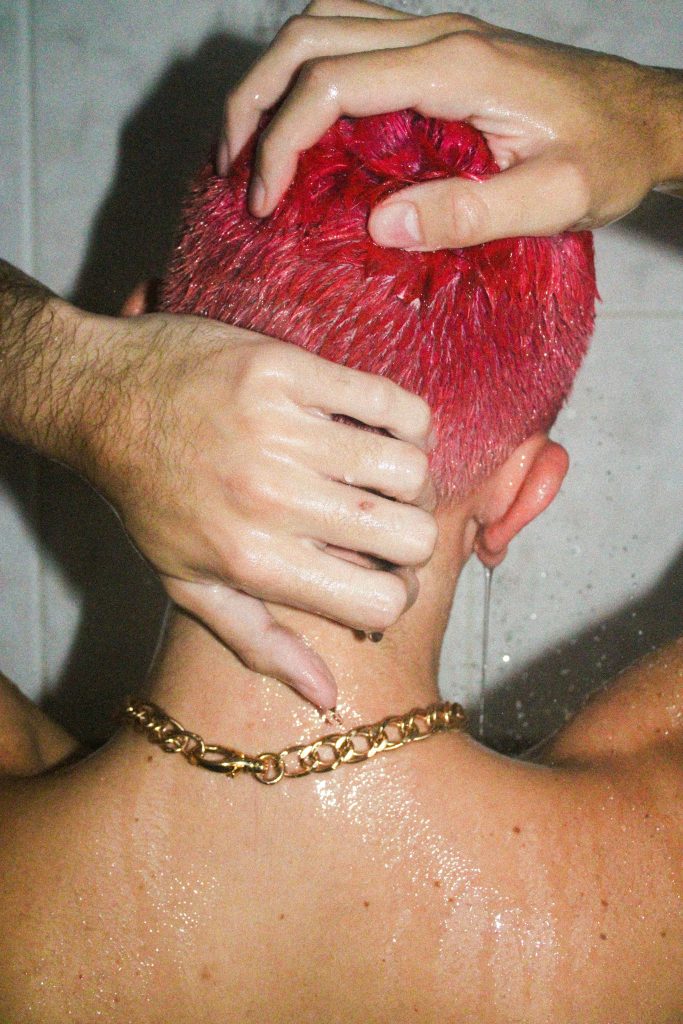
Another tip to repair damaged hair is to halt heat styling and chemical styling. Harmon said it will allow the hair to breathe and recover as styling will make hair weaker, brittle, and dry.
Damaged hair will also need to be repaired through cleaner water. Harmon advised installing a shower filter or water softener to promote cleaner water with reduced minerals and harmful residue that can worsen hair quality.
When traveling, you may also invest in a travel shower filter. These are easy to pack in the luggage, can be installed seamlessly, and can be effective in filtering minerals that can be harsh on hair and skin.
“Using water softeners can protect hair from calcium compounds while water filters can be used to get rid of impurities,” said Harmon.
When in doubt, Harmon also advised using purified bottled water for rinsing hair. This will ensure that the hair is being washed by water that is cleared of minerals and harmful chemicals.
“It would be difficult to risk unknown water from a new place. It could be harsher and can worsen the health of your hair and scalp,” said Harmon.
Harmon also recommends “hair cycling” which uses products that are tailored to hair issues. In this case, purifying shampoos can help get rid of pesky chemicals and minerals that are aggravating hair health. She highly recommends L’Oreal Paris Elvive Extraordinary Clay Purifying Shampoo or OGX Purifying Charcoal Detox Conditioner to repair damaged hair from hard water.
Similar to Dr. Hammadi’s tip, Harmon advised using acidic rinses to get rid of hard water residue. It will be a crucial step in removing buildup from hair without stripping hair of natural oils.
Another tip is to include aloe vera gel in taking care of your hair. When it is damaged by hard water, hair tends to become weaker and dry. The hydrating components of aloe vera will help repair hair and promote hair growth as it fights dryness and damage from hard water. Using this gel will transform the mane into softer, shinier, and stronger hair.
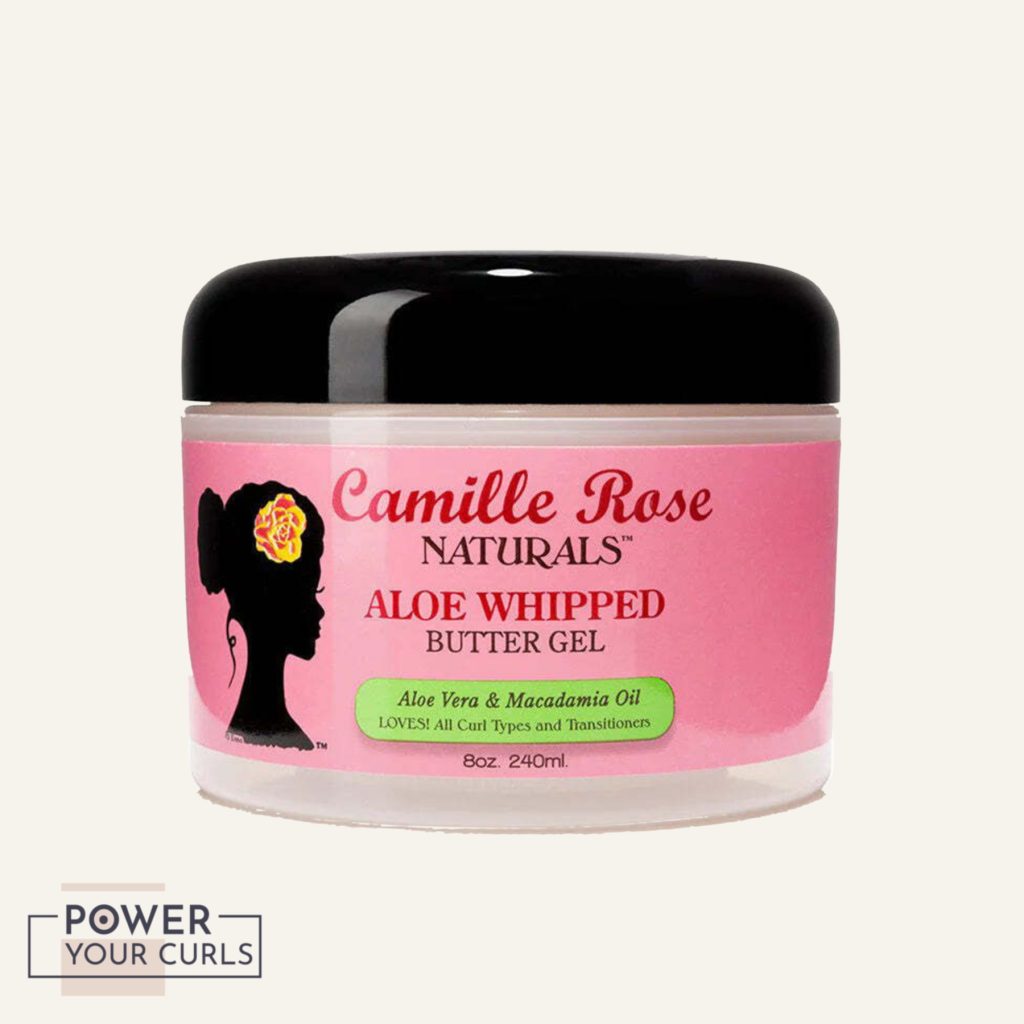
Dr. Hamed also recommends following a nutrient diet that can help nourish hair. Eating foods with greens, protein, nuts, and fish can provide the vitamins and minerals that hair needs for growth and strength.
When all hope is lost, Dr. Hammadi advised consulting a professional such as a dermatologist or trichologist to provide a tailored solution for damaged hair from hard water.
